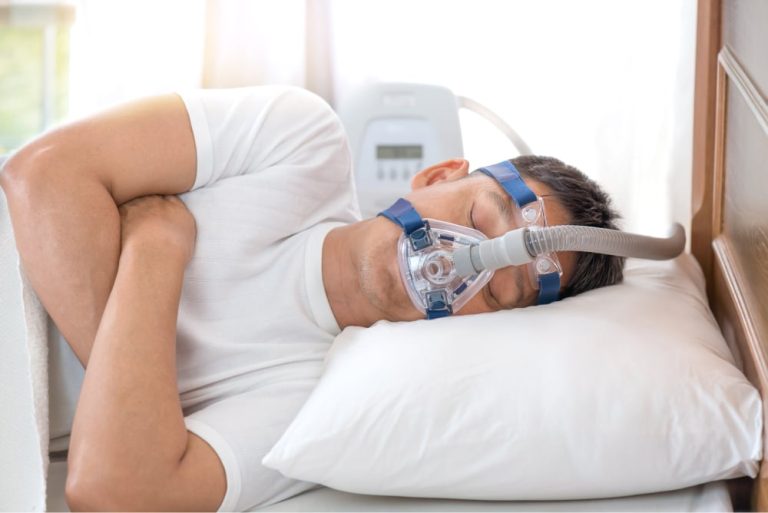Is Dementia Connected to Poor Sleep?
Like most things, sleeping is best done in moderation, and among the many effects of getting too little or too much is a new...
Posted on May 17, 2022
Sleep
Scientists know that sleep apnea can be a bit of a nightmare for your overall health, contributing to heart problems and other medical issues. And now there’s a new cause for concern that could keep sleep apnea sufferers up at night—a recent study shows that the condition can age you.
Sleep apnea occurs when the upper airway becomes blocked during sleep, creating breathing problems that cause individuals to wake up briefly multiple times throughout the night before falling back to sleep.
Sleep apnea can produce oxidative stress and chronic inflammation in your body, contributing to epigenetic age acceleration. Epigenetic age acceleration means that your biological age (the actual age of your cells, organs and tissue) is older than your chronological age. If you have epigenetic age acceleration, you are at a greater risk for chronic diseases and early death.
In the study, nonsmokers ages 28–58 participated in an initial sleep study. Sixteen of the participants had sleep apnea; eight did not. A computer algorithm scrutinized their blood and DNA to determine their biological age. After the participants underwent a year of CPAP (continuous positive airway pressure) machine use, researchers retested them.
After controlling for other factors that affect sleep apnea, researchers found that the sleep apnea patients who used a CPAP machine for four hours a night were able to slow the aging process.
A CPAP machine is a proven treatment for sleep apnea, delivering a constant stream of oxygen into an individual’s airways through a mask and tube to help eliminate breathing problems.
Although CPAP machines aren’t a one-size-fits-all solution for every sleep apnea patient, they are beneficial for many. If you feel like you aren’t getting a good night’s sleep, Pinnacle ENT’s expert sleep team can create a custom sleep strategy for your lifestyle that starts with state-of-the-art testing.
Get a better night’s sleep! Request an appointment today.
Like most things, sleeping is best done in moderation, and among the many effects of getting too little or too much is a new...
If your child snores lightly or occasionally, it’s probably not a cause for concern. However, frequent or heavy snoring may indicate that your child...
Did you spend all last night tossing and turning? TikTok wellness influencers would recommend you sip a sleepy girl mocktail—a mix of tart cherry...
Getting a good night’s sleep can be a difficult task if you’re dealing with sinus problems. Let’s look at how sinus pain and nasal...